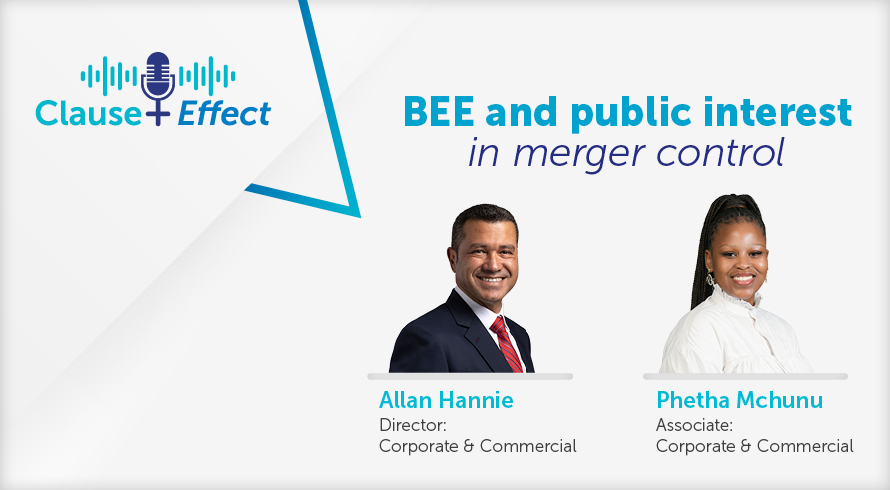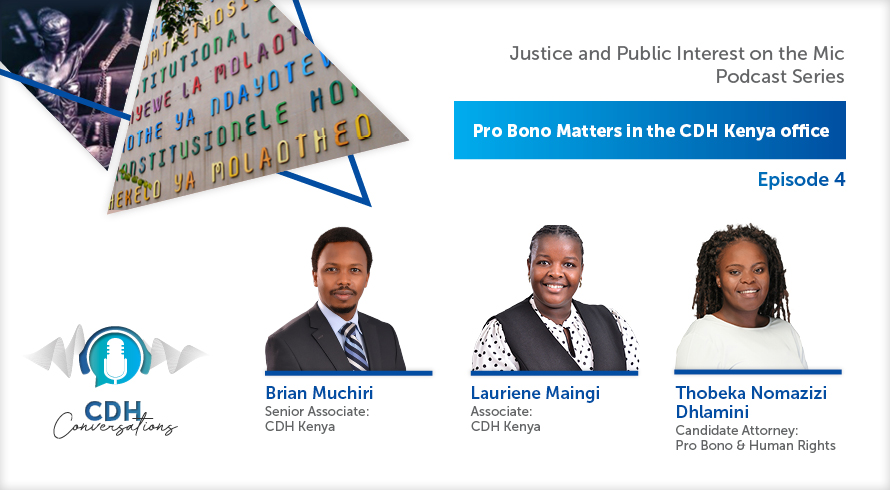Digging deeper: SCA prospecting for solutions in financially distressed group of companies
At a glance
- The case centered around the business rescue proceedings of certain companies in the Vantage group of companies, which faced financial distress following a tragic mining accident at one of its mines.
- However, the business rescue practitioners (BRPs) refused to recognise Arqomanzi as the owner of the claims. Despite Arqomanzi paying the purchase price for the claims to Standard Bank, the BRPs and the appellants denied that Arqomanzi had lawfully acquired the claims, and accordingly disputed theirownership of the claims.
- This judgment provides clarity on critical aspects of business rescue proceedings, and highlights the significance of ministerial consent in cases dealing with mining rights. The case also sets a precedent for future disputes within the business rescue and mining sectors and offers valuable insights into the interpretation of relevant legal provisions
The Background
The appeal arose from a dispute between Arqomanzi and the appellants regarding the business rescue proceedings faced by the Vantage companies. The Vantage companies, including Vantage Goldfields SA (Pty) Ltd (VGSA), Vantage Goldfields (Pty) Ltd (VGL), Makonjwaan Imperial Mining Company (Pty) Ltd (MIMCO), and Barbrook Mines (Pty) Ltd (Barbrook), experienced financial distress after a mining incident at MIMCO’s Lily Mine, where a crown pillar collapse at the gold mine resulted in the loss of lives and the inaccessibility of the mine due to the structural collapse. Consequently, MIMCO was placed in business rescue on 4 April 2016.
In August 2016, VGL requested a banking facility increase of R10 million on its existing facilities from Standard Bank, which was granted on the condition that certain additional security be provided in the form of cession to Standard Bank of the VGSA-VGL claim and the VGL-Barbrook claim, as collateral. The condition was accepted, and the claims were ceded to Standard Bank. Both cessions entitled Standard Bank, upon any breach which was not remedied, to sell or otherwise realise the security.
MIMCO’s financial turmoil contributed to VGL and Barbrook facing similar difficulties, leading to them also being placed in business rescue in 2016. The creditors of VGL and Barbrook adopted business rescue plans on 16 February 2017 and 6 August 2018, respectively. The adopted plans were interdependent, and their success was dependent on finance that was principally to be sourced from the Industrial Development Corporation.
When it became apparent that the necessary funding for the adopted plans would not become available, Arqomanzi held discussions with Standard Bank with a view to acquiring both the VGSA-VGL and the VGL-Barbrook claims. Following those discussions, Standard Bank agreed to sell those claims to Arqomanzi (after a failure by VGSA and VGL to remedy the breaches).
However, the business rescue practitioners (BRPs) refused to recognise Arqomanzi as the owner of the claims. Despite Arqomanzi paying the purchase price for the claims to Standard Bank, the BRPs and the appellants denied that Arqomanzi had lawfully acquired the claims, and accordingly disputed their ownership of the claims. They also contended that the loan account claims were fully subordinated under two subordination agreements. They further asserted that the Vantage proposal was superior to Arqomanzi’s proposed amended business rescue plans, because the former would not require the consent of the Minister of Mineral Resources and Energy (Minister), under section 11 of the Mineral and Petroleum Resources Development Act 28 of 2002 (MPRDA), whereas Arqomanzi’s amendment of the plans would.
As the issues raised would impact Arqomanzi’s voting interest when the new business rescue plans were to be voted on, Arqomanzi launched an application to the High Court.
High Court ruling
The High Court ruled in Arqomanzi’s favour. It held that:
the Vantage proposal could not be implemented without section 11 consent by the Minister, and the BRPs and appellants were interdicted from representing otherwise;
Standard Bank lawfully and validly ceded the VGSA-VGL and VGL-Barbrook claims to Arqomanzi and Arqomanzi was an independent creditor of VGL and Barbrook; and the subordination agreements subordinated only R14 million and R17 million (and not in each instance the full amount) of the claims in favour of VGL and Barbrook’s creditors respectively.
SCA ruling
The following issues were raised in the appeal:
- Whether certain “affected persons” should be joined as parties to the appeal.
- Whether Arqomanzi had validly and lawfully acquired the loan account claims that were initially ceded to Standard Bank.
- Whether Arqomanzi was an independent creditor of VGL and Barbrook.
- Whether, by virtue of the two subordination agreements, Arqomanzi had a voting interest in the companies in business rescue.
- Whether MIMCO and Barbrook’s mining rights could be exercised without the consent of the Minister under section 11 of the MPRDA, in circumstances where there had been a change of control in the ultimate holding company of the Vantage group.
This SCA held that:
- The “affected persons” could hardly have any legal interest in the issues that arose. The only parties that had a legal interest in those issues were Arqomanzi, Standard Bank, VGL and Barbrook, all of whom were parties to the proceedings. It therefore rejected the appellants’ belated non-joinder argument.
- Where the parties to the agreement had already performed in accordance with its terms, it could hardly be open to persons in the position of the appellants, who were strangers to the agreements, to challenge the validity thereof.
- Section 128(1)(g) of the Companies Act 71 of 2008 makes it clear that the identity of the creditor and its relationship to the company in business rescue are the determining factors. Therefore, because Arqomanzi had validly acquired the claims and was not related to any of the Vantage companies, it was an independent creditor of VGL and Barbrook.
- With reference to the other relevant facts, particularly the relevant financial statements of the companies, the High Court was correct in rejecting the appellant’s interpretation of the subordination agreements and declaring that only R14 million of the VGSA-VGL and R7 million of the VGL-Barbrook claims had been subordinated.
- The main object of section 11 of the MPRDA is “to prohibit any change in ownership or control of a mining right or an interest in a mining right, without the consent of the Minister”. Section 11(1) should accordingly be interpreted as including both direct and indirect cessions, transfers, leases, etc., and a change of control by the issue of new shares in a company that controls the mining right. The Vantage proposal therefore required section 11 ministerial consent.
In the result, the SCA concluded that the appeal should be dismissed with costs, including those of the Minister and the two counsel who were employed.
This judgment provides clarity on critical aspects of business rescue proceedings, and highlights the significance of ministerial consent in cases dealing with mining rights. The case also sets a precedent for future disputes within the business rescue and mining sectors and offers valuable insights into the interpretation of relevant legal provisions.
The information and material published on this website is provided for general purposes only and does not constitute legal advice. We make every effort to ensure that the content is updated regularly and to offer the most current and accurate information. Please consult one of our lawyers on any specific legal problem or matter. We accept no responsibility for any loss or damage, whether direct or consequential, which may arise from reliance on the information contained in these pages. Please refer to our full terms and conditions. Copyright © 2025 Cliffe Dekker Hofmeyr. All rights reserved. For permission to reproduce an article or publication, please contact us cliffedekkerhofmeyr@cdhlegal.com.
Subscribe
We support our clients’ strategic and operational needs by offering innovative, integrated and high quality thought leadership. To stay up to date on the latest legal developments that may potentially impact your business, subscribe to our alerts, seminar and webinar invitations.
Subscribe




